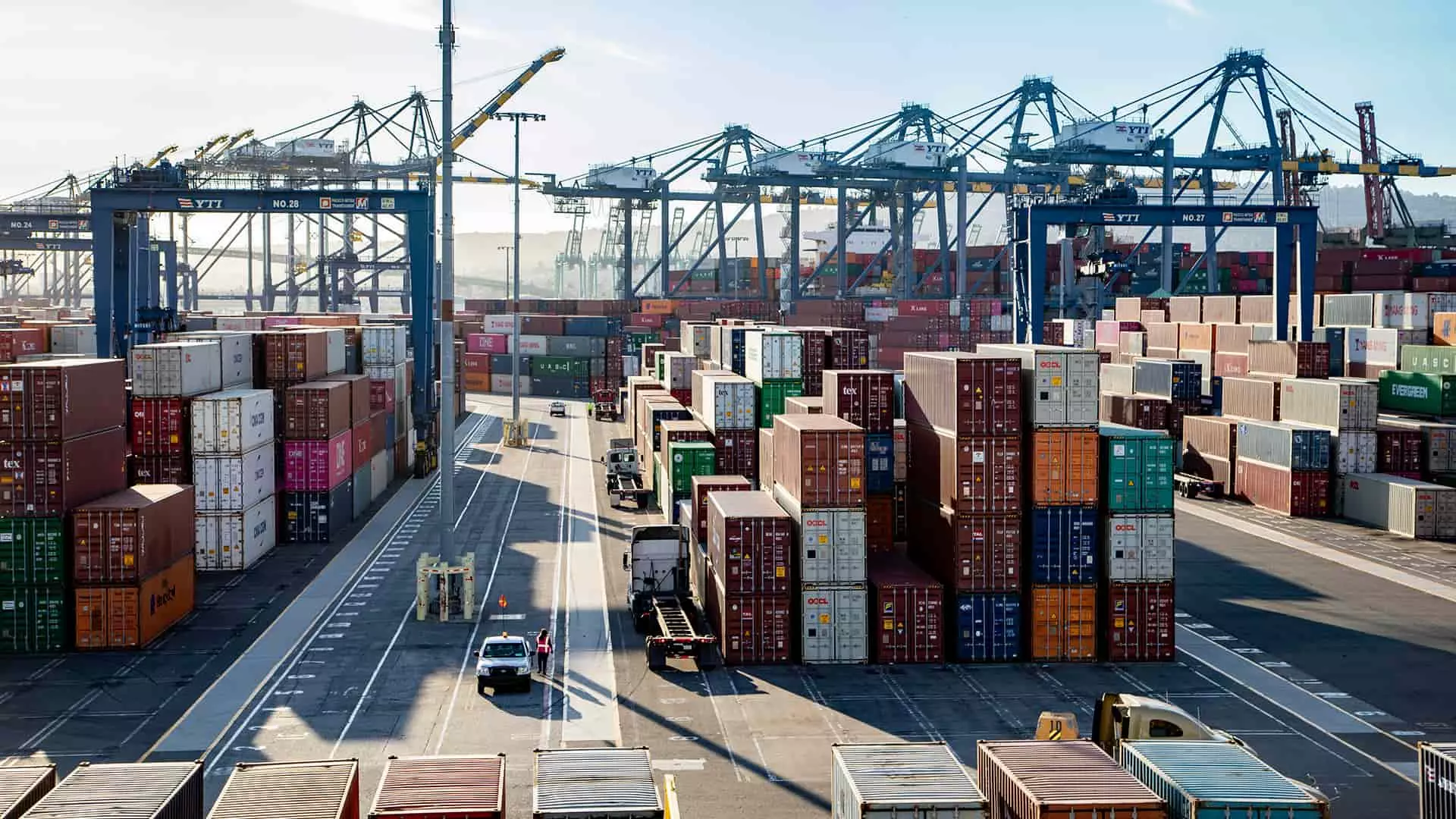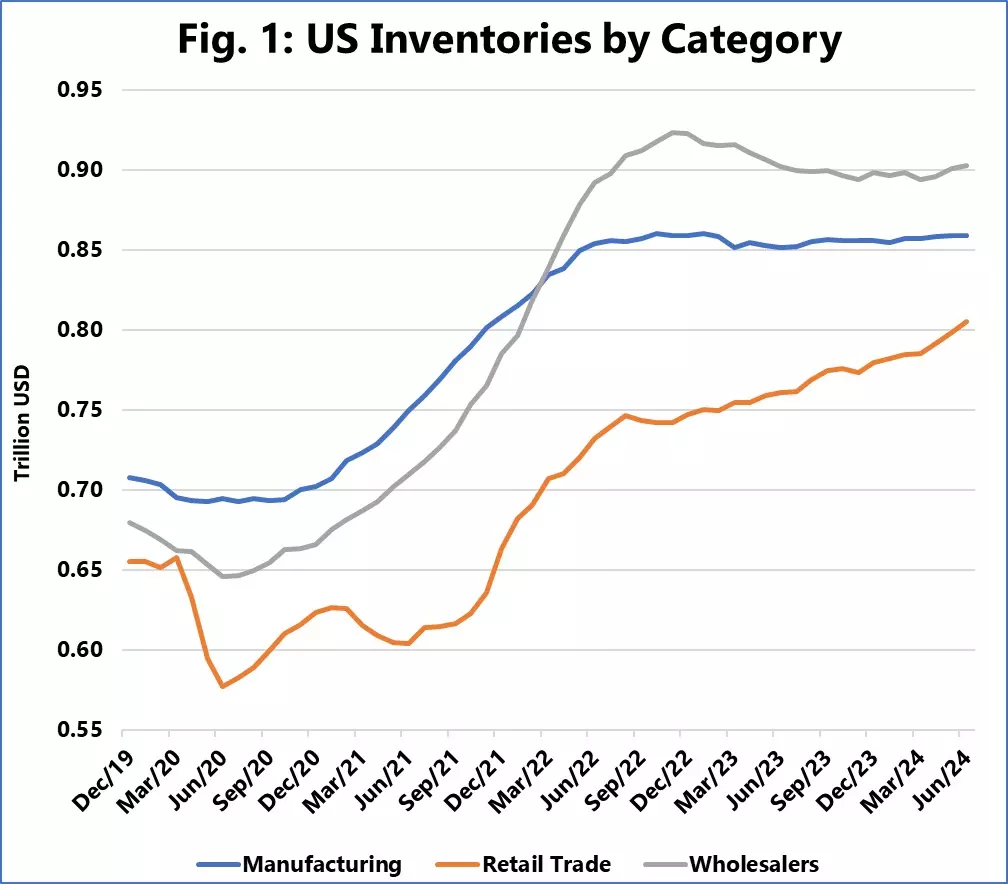US retailers' inventories above trend, no major demand push
Growth in inventories a continuation of a long-term trend that began in 2009 (with a temporary drop during the pandemic)

The June 2024 U.S. inventory data, released by the Census Bureau, shows that retailers have been growing inventories, which further supports the notion that the strong growth in container imports was used to grow inventories, and not due to an underlying increase in consumer spending.
"We mentioned how U.S. consumer spending data did not support the notion of a sudden spending boom, and that the spike in Transpacific volumes in May and June 2024 was likely driven by a front-loading of imports," says the latest update from Sea-Intelligence.

Figure 1 shows the inventories by the categories defined by the US Census Bureau – manufacturers, retailers and wholesalers, the update added. "The retailers are continuously increasing their inventories, and it might seem as if the growth in retailers’ inventories is just a continuation of a long-term trend that began in 2009 (with a temporary drop during the pandemic).
"However, it now appears that this inventory build-up is gathering pace, and when compared to the long-term trend, these recent months have seen an upwards deviation, some $18 billion larger than expected from the long-term trend. Even when we look at the inventories to sales ratio (I/S ratio), the increasing trend in retailers’ inventories is also exceeding the growth in actual sales as the I/S ratio has also been increasing since late 2022 and is rapidly approaching that of the wholesalers."
The inventory buildup is not in itself a warning sign – it could be a sign of importers, concerned about a strike in the U.S. East Coast ports later this year, front-loading cargo. It could also be importers beginning to move product in anticipation of potential new tariffs as the U.S. presidential election is likely to focus heavily on the trade relationship with China.
If history over the past five years is any guide to go by, we are poised for a significant inventory increase over the last months of 2024, the update added.



